Happy Year of the Boar! I hope all of you are ready for a new and wonderful year of fuzzy pigs with tusks. 🐗
After a dreadful December, we're back this month to give you a little insight into our top picks for the new Japanese learning resources that came out in January. We found some games and apps you might want to check out.
Atelier Sentô Games: The Doll Shop
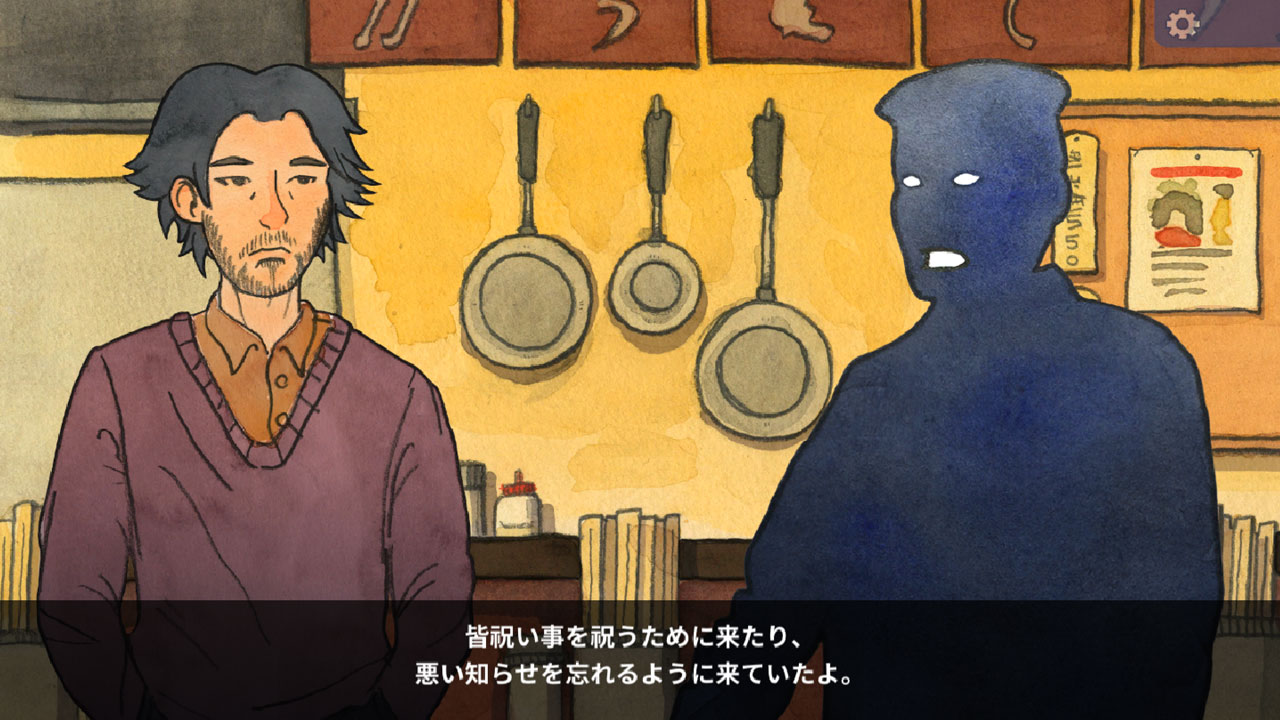
First off, a big thank you to Rebecca Z. for letting us know about the Atelier Sentô games!
For several years now, French duo Atelier Sentô has been creating point-and-click adventure games using watercolor art inspired by their travels in Japan. The results are beautiful. This game, The Doll Shop, a "half romance, half horror" story, is about a dollmaker who lives in a small Japanese village. You can change the language to Japanese and, because it's an adventure game with branching paths and different endings, comprehending what’s being said is important. Your reading and kanji skills will get a workout.
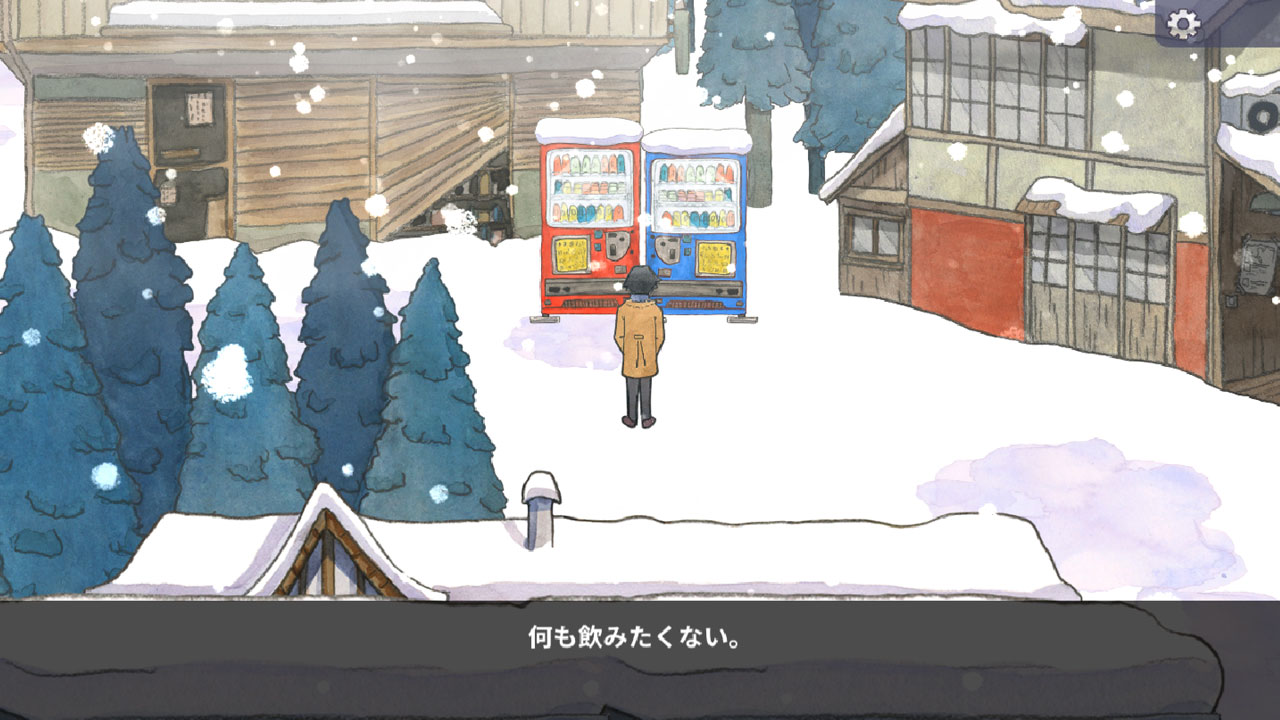
While intermediate Japanese learners will have an easier time completing this game, beginners with a desire for small doses of kanji/reading practice can benefit as well. The text doesn’t scroll until you click, so you can play at your own pace and, if you need to, take extra time to decipher the meaning of a sentence. With no furigana or rikai available, you’ll be strengthening your kanji recall at the same time. When you’re finished playing a section of the game in Japanese, you can reload the save file, switch to English, and see how well you understood what you read.
Best of all, The Doll Shop is free to play and easy to set up: just download the game file, click "open," and you’re on your way.
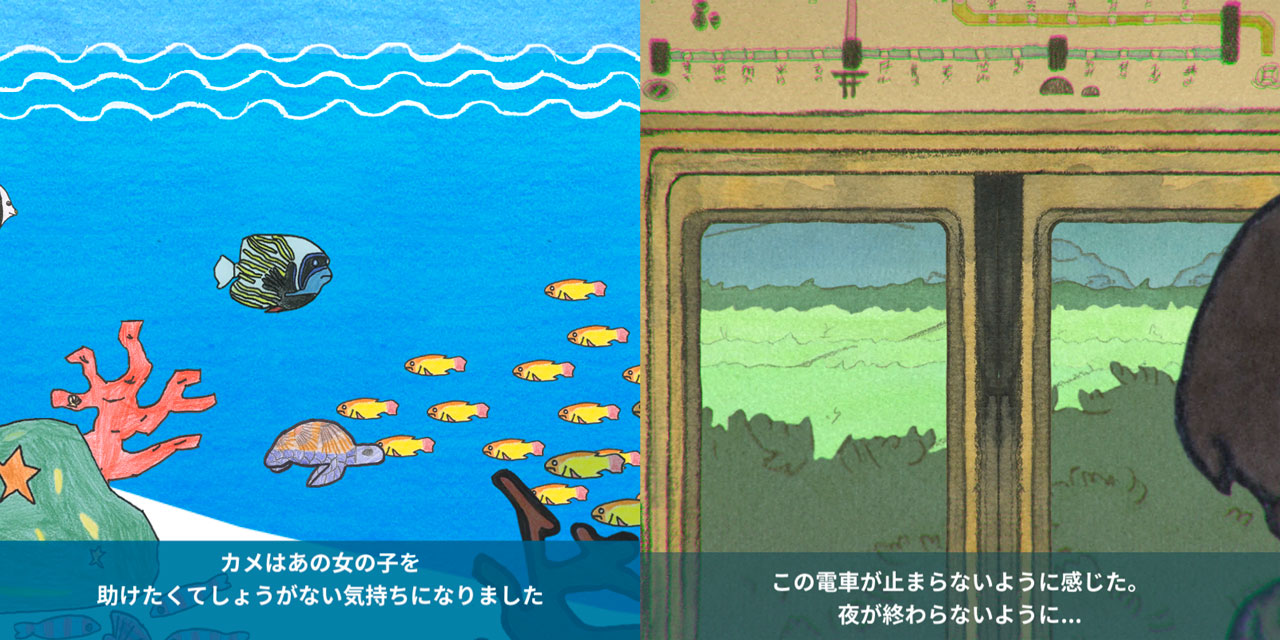
When you’re done with The Doll Shop (or if it isn’t quite the story-quest you’re seeking), Atelier Sentô has two more free games with Japanese-language options for even more gaming language practice: Yūrei Station and Sango: Tales from the Coral Cave. Whichever you choose, you’ll have a chance to practice your Japanese while getting lost in a beautiful, haunting, watercolor-y world.
No Fluff: Katakana
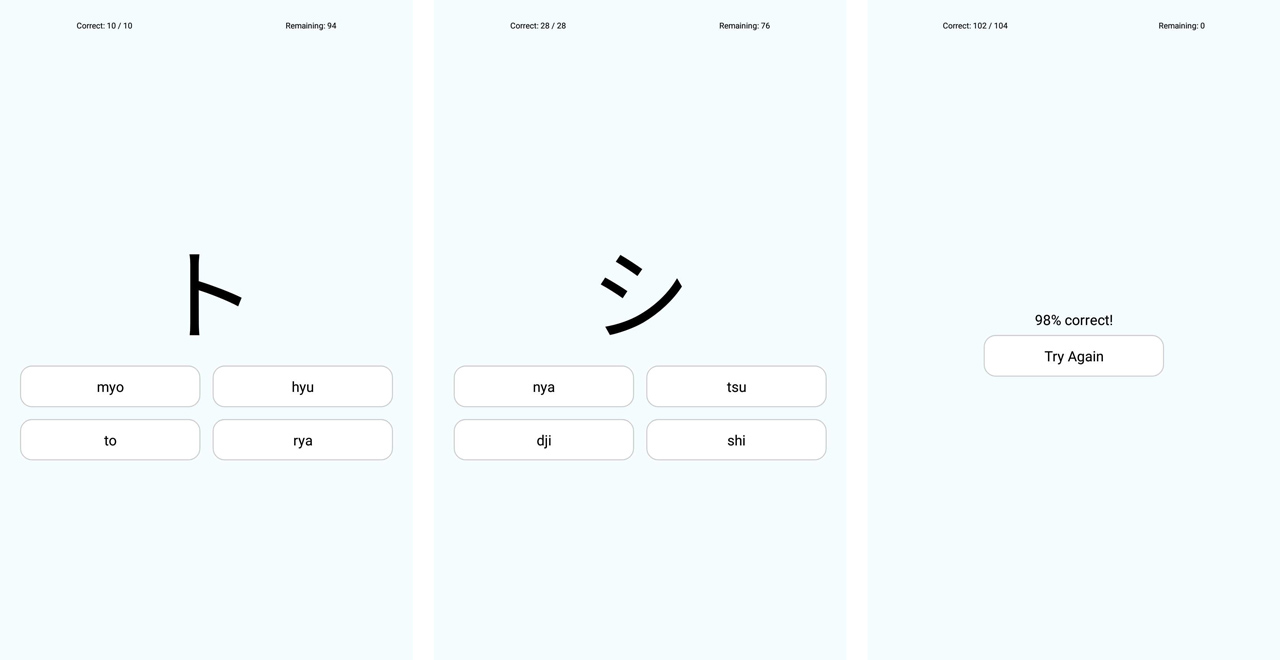
Katakana can feel like a roadblock in the middle of a sentence, and it’s often cited as a source of frustration for Japanese learners. Why not sharpen your katakana recognition with quick, simple quizzes so you can blow right through?
No Fluff: Katakana can help speed up your recognition time and hopefully make katakana less of a challenge for you in the future.
No Fluff: Katakana for Android was made to do just that — and the "No Fluff" in its title is dead serious. For this learning tool, a title screen appears for a brief moment before you’re launched into a bare-bones quiz of 104 katakana items you must recognize by tapping the romaji in the multiple-choice list below. Keep going to the end, and you’ll see your final score and a Try Again button you can tap to start over again. That’s it! No ads, no Internet access required, and no data collected (or so the download page claims). It’s a free, simple way to improve your katakana recognition.
This no-fluff approach has some drawbacks. For example, you get no feedback when you get a question wrong (or right, for that matter), so you have to keep an eye on the Correct xx/xx counter in the top left-hand corner. And as we’ve said before, multiple-choice isn’t the best way to learn a language—forced input is. Still, No Fluff: Katakana can help speed up your recognition time and hopefully make katakana less of a challenge for you in the future.
Late Shift

Released on Steam in 2016, Late Shift is a crime-thriller full-motion video (FMV) game that claims to be "the world's first cinematic interactive movie." Think Black Mirror: Bandersnatch crossed with Night Trap and you'll be getting the idea.
As you watch/play the movie/game, options appear at the bottom of the screen that you have a limited amount of time to answer. Each choice significantly alters the story and is the sole gameplay element. One full playthrough takes about ninety minutes, but with so many variations possible, you can create and watch a lot longer.
Late Shift is rated M, so if you're mature enough, check out the trailer:
You're probably wondering how a game can benefit your Japanese studies. Easy: its makers added a Japanese mode and Japanese subtitles! Even though the movie's soundtrack is in English, the whole game can be played in Japanese. Players can select the (very fast!) subtitles to appear in Japanese, and all the crucial choices appear in Japanese as well.
The whole concept works well. Some of the subtitles seem a bit strange, but remember they're a translation of English (and other languages… I won't spoil it for you). You'll also hear a decent amount of Japanese spoken in the game as well.
The whole game can be played in Japanese. Players can select the (very fast!) subtitles to appear in Japanese, and all the crucial choices appear in Japanese as well.
Subtitles run very quickly, and each answer is timed. You have to be able to read, understand, and react faster than you may be used to. Pausing blocks you from seeing the screen (no cheating!), so that won't let you slow things down either.
Still, if you're up for the challenge and in the mood for an interesting game/movie ride, ninety minutes or more with Late Shift could be an excellent and entertaining way to sharpen your Japanese reading skills.
iTranslate Lingo
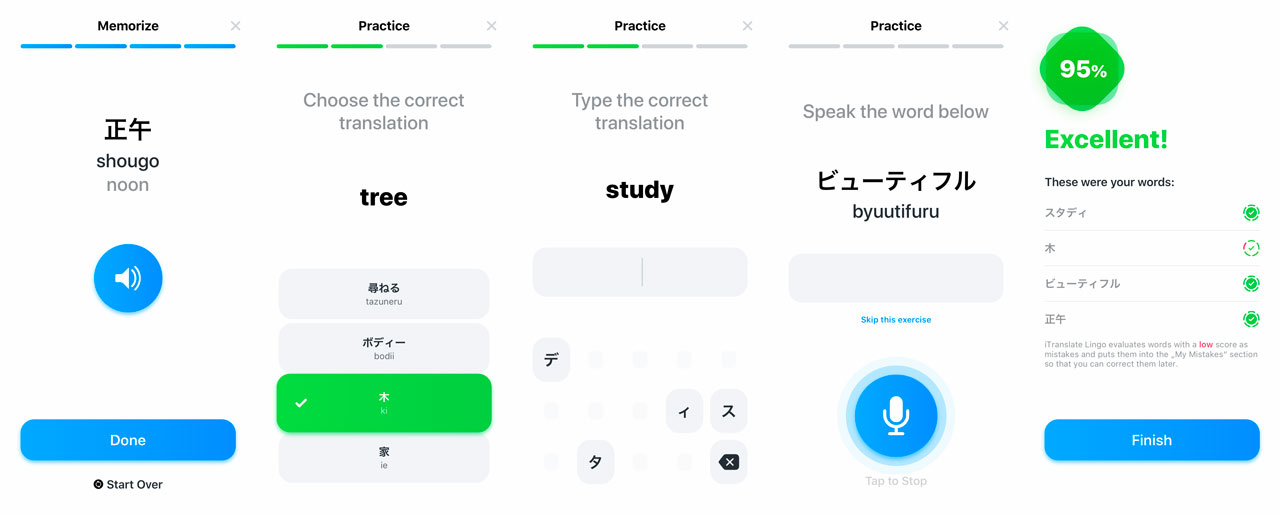
Created to introduce new words in your target language in small four-word batches, iTranslate Lingo is an app from iTranslate.
Lessons in iTranslate Lingo are broken into batches which teach words in kanji or kana (depending on the word) with romaji and a translation underneath. Computer-generated audio plays automatically in the lesson. Once you progress through all four lessons, you receive a series of practice questions to test your short-term memory of the words you just learned:
- Choose the Japanese translation (based on the English)
- Choose the English translation (based on the Japanese)
- Type the correct translation (character multiple choice)
- Speak the word below
iTranslate Lingo isn't perfect. To start with, it's not very personal: while you can choose your native and target languages from among fourteen options, translations (and even the words you choose) appear in a very automated way, just like the audio. And learning words like ライス, ウインドウ, and レグ instead of the actual Japanese counterparts feels strange.
There are other issues with a one-to-one, translation-based program like this. When learning a batch of words, for example, I was given:
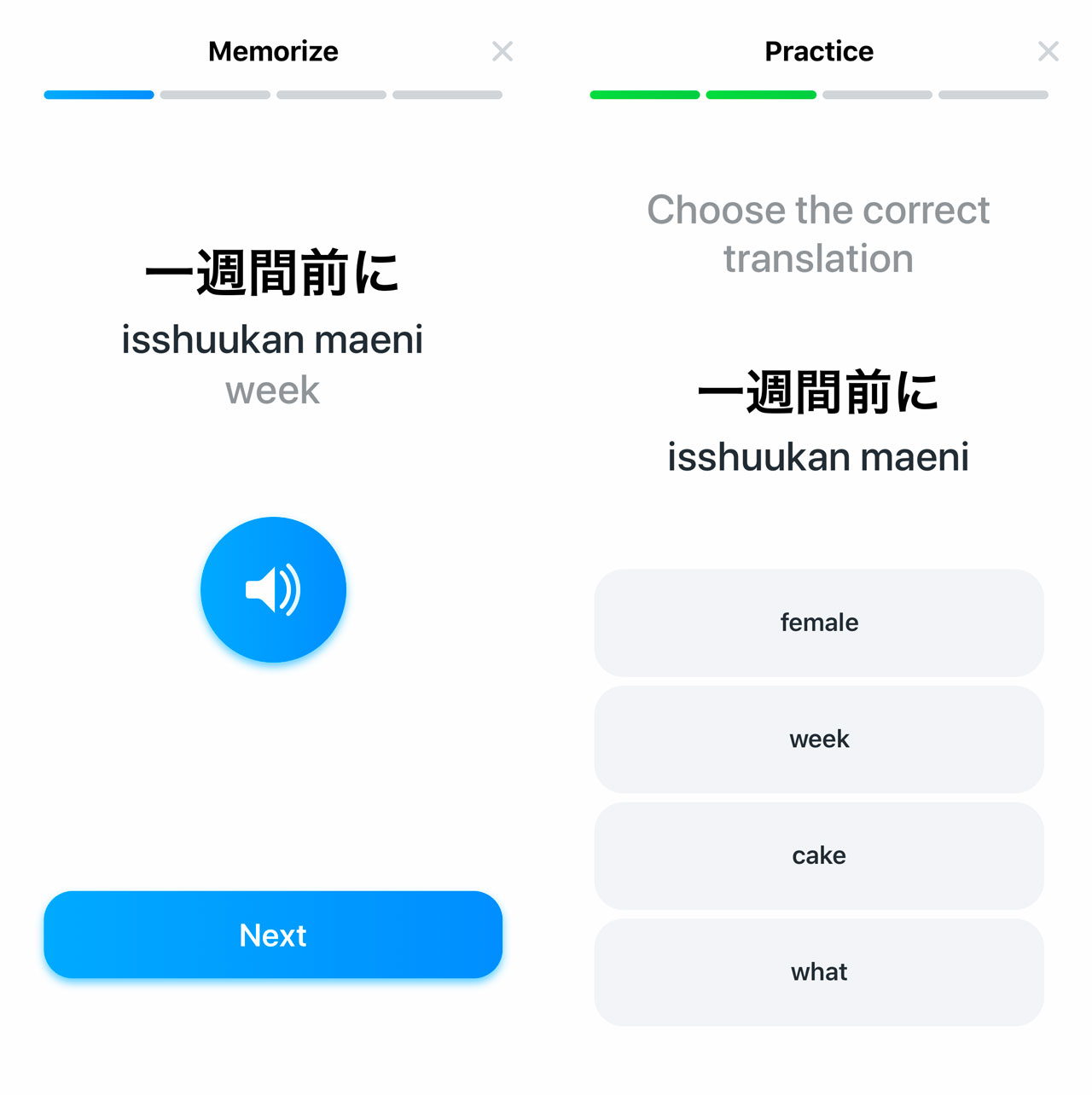
"Week" is written 週, not 一週間前に, which means "one week ago."
Another issue came up during the speaking section of the practice. Even though I said 一週間前に, the app heard it as 1週間前に—and marked it wrong, moving on to the next item without allowing a retry. There was no way to go back.
If you stick with it, once a lesson is complete, the app gives you a score based on your percentage of correct answers. If you scored "low"—which isn't defined 🤨—on any items, you can review them from the dashboard.
iTranslate Lingo's free version limits users to three lessons of four words each per day. The PRO version, which costs $4.99 per month or $39.99 per year, allows unlimited lessons.
The bottom line? Even though iTranslate Lingo has the potential to be a useful daily vocabulary supplement for Japanese learners, with its daily reminders and simple repetition, it still lacks too much to be worth the price — especially forty bucks a year!
That's just the start of 2019! We'll be back next month—and the month after that, and the month after that, and probably the month after that too—with all the suggestions one series can handle. Remember, if you want to be cool like Rebecca Z., don't forget to email your new Japanese learning resource finds to: hello@tofugu.com or on Twitter @tofugu. We will love you forever!
